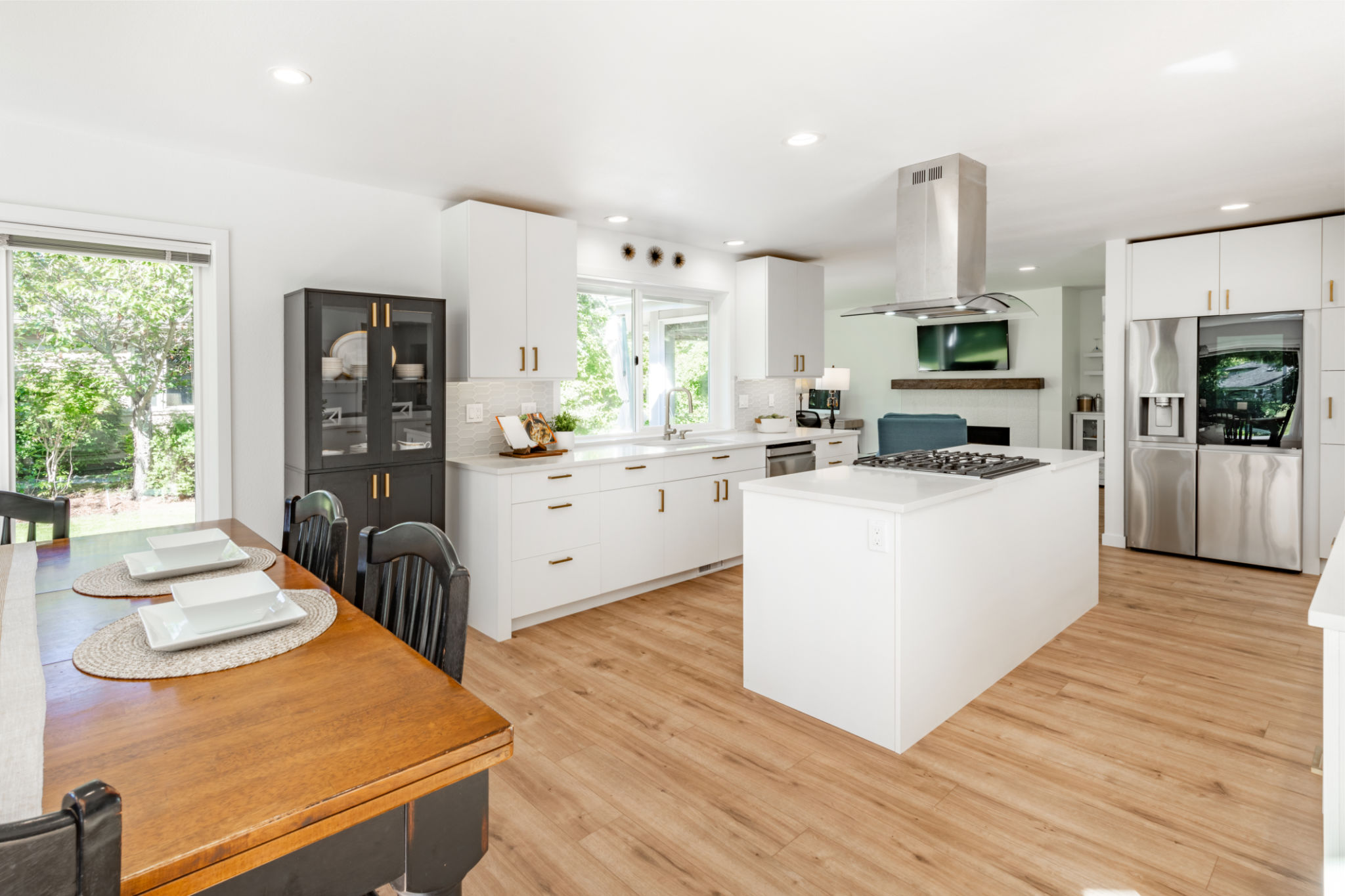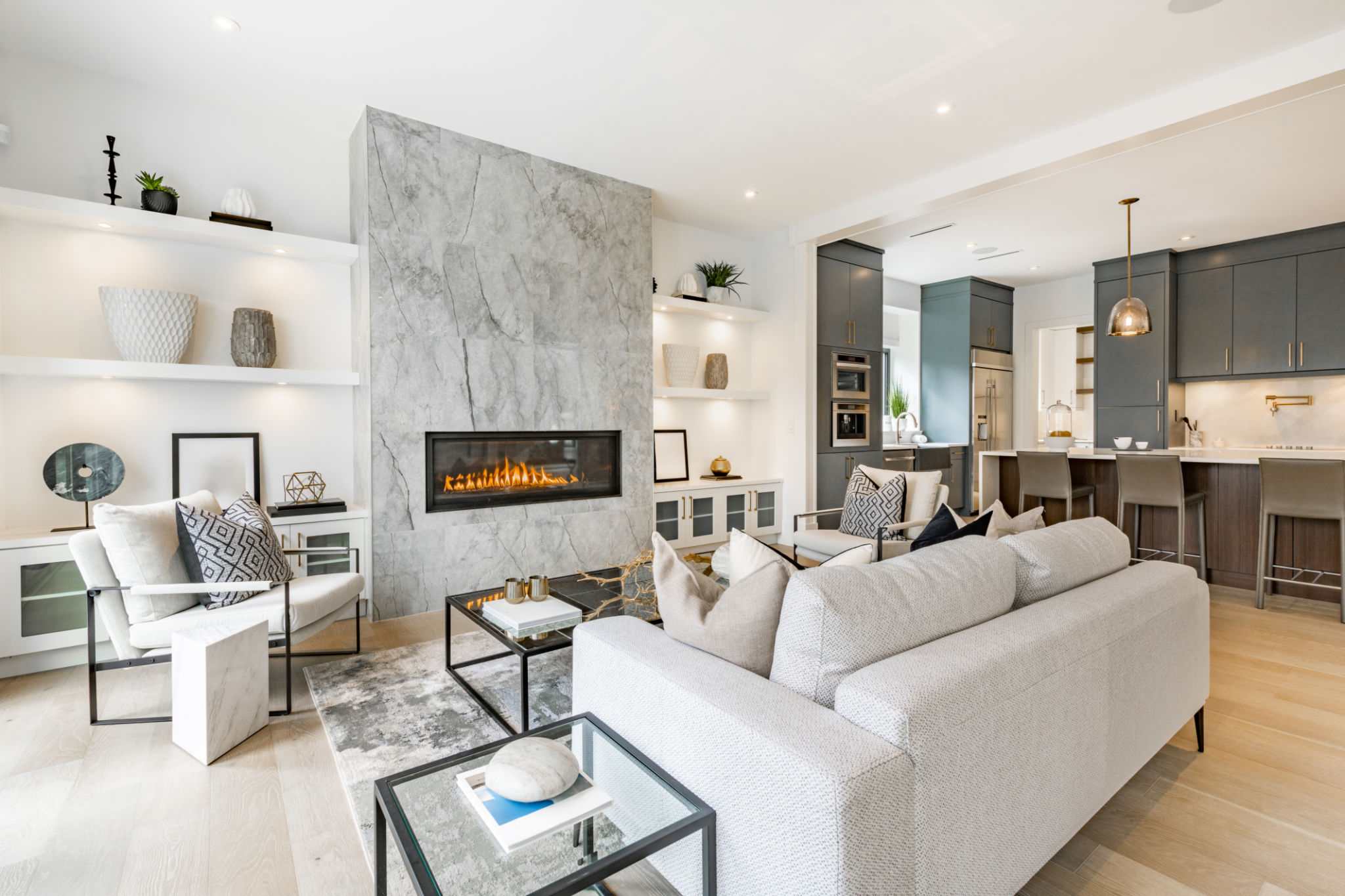The Ultimate Guide to Modern Home Design Trends
Understanding Modern Home Design
Modern home design is all about simplicity, functionality, and elegance. It embraces clean lines, open spaces, and a minimalist approach that prioritizes quality over quantity. In recent years, this design trend has gained popularity as homeowners seek to create living spaces that are both aesthetically pleasing and practical. By focusing on a few key elements, anyone can transform their home into a modern masterpiece.

Key Characteristics of Modern Design
One of the defining characteristics of modern home design is its emphasis on open floor plans. This layout creates a sense of flow and connectivity throughout the home, allowing for more natural light and an airy atmosphere. Additionally, modern design often incorporates large windows, making the most of natural light and blurring the lines between indoor and outdoor spaces.
Another essential aspect is the use of neutral colors. Whites, grays, and earth tones dominate modern interiors, providing a versatile backdrop that can be easily personalized with colorful accents or bold artworks. The neutral palette ensures a clean and uncluttered look that is both timeless and adaptable.
Materials and Textures
Modern home design makes strategic use of materials and textures to add depth and interest to a space. Commonly used materials include metal, glass, and concrete. These elements bring an industrial feel that contrasts beautifully with softer textures like wool or cotton fabrics. Mixing different textures creates a dynamic environment that feels both sophisticated and comfortable.

The Role of Furniture in Modern Design
When it comes to furniture, modern design favors pieces that are simple yet functional. Furniture often features sleek lines and minimal ornamentation, allowing each piece to serve a purpose without overwhelming the space. Multi-functional furniture is particularly popular, as it maximizes utility in smaller spaces while maintaining a clean aesthetic.
Incorporating mid-century modern furniture can also enhance the overall look. These pieces are known for their iconic designs that blend seamlessly with contemporary elements, adding a touch of timeless elegance to any room.
Incorporating Technology
As technology continues to evolve, it plays a significant role in modern home design. Smart home systems are becoming increasingly common, allowing homeowners to control lighting, climate, and security with ease. These systems not only enhance convenience but also contribute to energy efficiency, aligning with the sustainable ethos of modern design.

Embracing Sustainability
Sustainability is at the heart of modern design trends. Homeowners are increasingly opting for eco-friendly materials and energy-efficient solutions in their homes. From solar panels to water-saving fixtures, there are numerous ways to incorporate sustainability into modern design without sacrificing style or comfort.
Additionally, using locally sourced materials and supporting sustainable brands can further reduce your home's environmental impact while contributing to a unique and personalized aesthetic.
Conclusion: Creating Your Modern Space
By understanding the key elements of modern home design, you can create a space that is both stylish and functional. Whether you're starting from scratch or updating an existing home, focusing on open layouts, neutral colors, and sustainable practices will ensure your home remains a contemporary haven for years to come.

